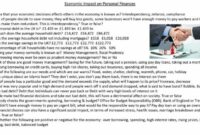Challenges of maintaining healthy relationships in a fast-paced world are more prevalent than ever. Our increasingly busy lives, filled with work demands, technological distractions, and societal pressures, often leave little room for nurturing the vital connections that sustain us. This exploration delves into the common hurdles couples face, offering practical strategies and insights to foster stronger, more resilient relationships despite the relentless pace of modern life.
We’ll examine how time constraints, technology overuse, stress, and conflicting individual needs impact intimacy and connection, and provide actionable steps to navigate these challenges successfully.
Time Constraints and Scheduling Conflicts

Source: squarespace-cdn.com
In today’s fast-paced world, juggling work, family, and personal life leaves many couples struggling to find quality time together. The constant pressure of deadlines, commitments, and responsibilities can significantly impact the strength and health of a relationship, leading to feelings of disconnect, resentment, and ultimately, strain. Prioritizing the relationship amidst these competing demands requires conscious effort and strategic planning.Busy schedules significantly impact relationship quality by reducing opportunities for meaningful interaction and shared experiences.
The lack of dedicated time together can lead to decreased communication, emotional distance, and a feeling of being neglected. This can manifest in increased conflict, decreased intimacy, and a general erosion of the bond between partners. The constant pressure to “do more” often overshadows the importance of “being together,” resulting in a decline in relationship satisfaction.
Strategies for Effective Time Management in Relationships
Effective time management is crucial for maintaining a healthy relationship despite busy schedules. Couples need to proactively schedule time for each other, just as they would for any other important appointment. This involves identifying time slots in their weekly schedule specifically dedicated to connecting and strengthening their bond. It’s also vital to be flexible and adapt to unexpected changes, while consistently making time for each other a priority.
- Schedule Regular Date Nights: Designate at least one evening per week for a dedicated date night. This could involve a romantic dinner, a movie night at home, or an engaging activity you both enjoy.
- Utilize Short Bursts of Time: Even 15-20 minutes of uninterrupted quality time can make a difference. Use this time for meaningful conversation, a quick hug, or simply enjoying each other’s company.
- Communicate Openly About Schedules: Maintain open communication about work commitments, family obligations, and personal appointments. Transparency and understanding are key to successfully navigating busy schedules.
- Delegate or Outsource Tasks: Consider delegating tasks or outsourcing chores to free up time for each other. This might involve hiring a cleaner, utilizing meal delivery services, or asking family members for help.
- Plan Weekend Getaways: Occasional weekend getaways or longer vacations provide an opportunity to disconnect from daily routines and reconnect as a couple. Even a short trip can significantly strengthen the relationship.
Balancing Work, Family, and Personal Life, Challenges of maintaining healthy relationships in a fast-paced world
Balancing the demands of work, family, and personal life while maintaining a strong relationship presents a significant challenge for many couples. It requires careful planning, effective communication, and a willingness to compromise. Each partner needs to understand and respect the other’s commitments and responsibilities, while actively working together to find solutions that support both individual needs and the couple’s shared goals.
Sample Weekly Schedule Incorporating Relationship Time
This sample schedule highlights the importance of prioritizing relationship time within a busy week. It is crucial to adapt this to individual needs and circumstances.
| Day | Morning | Afternoon | Evening |
|---|---|---|---|
| Monday | Work | Work | Family Dinner, 30 min couple conversation |
| Tuesday | Work | Work | Date Night (7pm-9pm) |
| Wednesday | Work | Work | Relax, Individual Time |
| Thursday | Work | Work | Family Time, Board Games |
| Friday | Work | Work | Relax, Prepare for Weekend |
| Saturday | Errands/Chores | Couple Activity (Hiking, Biking) | Movie Night at Home |
| Sunday | Relax, Prepare for the week | Family Brunch | Relax, Plan for the week ahead |
Technological Distractions and Communication Barriers: Challenges Of Maintaining Healthy Relationships In A Fast-paced World
In today’s hyper-connected world, technology plays a significant role in our lives, including our relationships. While it offers convenient ways to stay connected, excessive technology use can ironically create significant barriers to meaningful communication and intimacy. The constant buzz of notifications, the allure of social media, and the ease of distraction through various apps can erode the quality of time spent together and hinder genuine connection.Excessive technology use affects communication and intimacy by creating a sense of distance and disengagement.
When partners are constantly checking their phones, scrolling through social media feeds, or engrossed in online games during conversations, it sends a clear message that their attention is elsewhere. This lack of undivided attention can lead to feelings of neglect, frustration, and ultimately, damage the emotional bond between partners. The constant stream of digital stimuli can also make it difficult to truly be present and engage in deep, meaningful conversations, hindering the development and maintenance of intimacy.
Juggling careers, family, and social life in today’s fast-paced world makes nurturing strong relationships tough. Finding time for quality connection is a constant struggle, but planning for the future is key; check out this guide on Best ways to invest for a luxury lifestyle retirement to ensure you have the financial freedom to prioritize relationships in your later years, reducing the stress of financial worries on your personal connections.
Furthermore, the curated nature of online interactions often fails to capture the nuances of real-life communication, leading to misunderstandings and misinterpretations.
Strategies for Setting Boundaries Around Technology Use
Establishing clear boundaries around technology use is crucial for fostering more meaningful interactions. This involves consciously creating dedicated technology-free zones and times. For example, designating specific times of the day or specific locations (like the bedroom or dining table) as “phone-free” zones can significantly improve the quality of face-to-face interactions. Another effective strategy is to schedule regular “digital detox” periods, perhaps a weekend afternoon or an entire evening, to disconnect completely and focus on shared activities.
Actively participating in non-digital activities like board games, walks in nature, or engaging in hobbies together helps strengthen the bond and reduces reliance on technology for entertainment and interaction. Finally, consider using technology management tools to limit access to distracting apps or websites during specific times.
Challenges of Maintaining Open and Honest Communication in a Digitally Saturated World
Maintaining open and honest communication in a digitally saturated world presents unique challenges. The ease of misinterpreting text messages or emails, the lack of non-verbal cues in online communication, and the potential for miscommunication through social media can create misunderstandings and strain relationships. Furthermore, the constant availability afforded by technology can blur the lines between personal and professional life, leading to communication overload and making it difficult to prioritize meaningful conversations.
The pressure to maintain a perfect online persona can also inhibit open and honest communication, as individuals may feel compelled to present a filtered version of themselves rather than their authentic selves. This can create a disconnect between the online and offline versions of the relationship, impacting its overall health.
Mindful Communication Techniques to Overcome Technology-Related Barriers
Practicing mindful communication techniques can help overcome technology-related barriers in relationships. This involves being fully present during conversations, actively listening without distractions, and focusing on understanding your partner’s perspective. Before engaging in a conversation, consciously put away your phone and give your partner your undivided attention. Make eye contact, listen attentively to what they’re saying, and respond thoughtfully rather than reactively.
Juggling work, social life, and personal time makes healthy relationships tough in today’s fast-paced world. We often sacrifice connection for convenience, but ironically, technology, while sometimes a barrier, could also be a solution. Check out this article on The future of luxury lifestyle and technological advancements to see how advancements might help us reconnect. Ultimately, prioritizing quality time and mindful communication remains key to thriving relationships, even amidst the whirlwind of modern life.
Practice active listening by summarizing your partner’s points to ensure understanding and showing genuine interest. When communicating digitally, be mindful of your tone and wording, as these can be easily misinterpreted. Use emojis sparingly and avoid sending lengthy messages late at night, when misinterpretations are more likely. Finally, regularly schedule dedicated time for face-to-face communication, free from technological distractions, to nurture deeper connection and understanding.
Remember, technology should enhance, not replace, meaningful human interaction.
Maintaining Intimacy and Connection in a Fast-Paced Lifestyle
In today’s fast-paced world, maintaining strong, intimate relationships can feel like a monumental task. The constant demands of work, family, and social life often leave little time for nurturing the emotional and physical connections that are crucial for a healthy partnership. However, prioritizing intimacy, even amidst a busy schedule, is vital for relationship satisfaction and overall well-being.
The Importance of Physical and Emotional Intimacy
Physical intimacy, encompassing touch, affection, and sexual connection, plays a significant role in strengthening the bond between partners. It fosters feelings of closeness, security, and mutual attraction. Emotional intimacy, on the other hand, involves sharing vulnerabilities, feelings, and thoughts openly and honestly. This creates a sense of trust and understanding, allowing partners to feel truly seen and accepted.
Juggling careers, family, and social lives in today’s fast-paced world makes nurturing strong relationships tough. Finding time for genuine connection is crucial, and sometimes that means re-evaluating priorities. A key aspect is understanding that true fulfillment often comes from experiences rather than things, as explored in this insightful article: Achieving a fulfilling luxury lifestyle beyond material possessions.
Ultimately, prioritizing meaningful relationships, even amidst the pressures of modern life, contributes to a richer, more balanced existence.
Both forms of intimacy are interconnected and contribute to a deeper, more fulfilling relationship. A lack of either can lead to feelings of distance and dissatisfaction.
Creative Ways to Nurture Intimacy Despite Busy Schedules
Finding time for intimacy requires creativity and intentionality. Instead of relying on large blocks of uninterrupted time, consider incorporating small, meaningful moments throughout the day. A quick hug before work, a shared lunch break, or a brief phone call during the afternoon can all contribute to a sense of connection. Planning regular date nights, even if it’s just for an hour, can provide dedicated time for focused interaction and intimacy.
Consider exploring new activities together, such as taking a cooking class, attending a concert, or trying a new hiking trail. These shared experiences can create lasting memories and strengthen your bond. Another strategy is to schedule regular “unplugged” time, free from technological distractions, to fully engage with your partner.
Challenges of Maintaining a Strong Emotional Connection Amidst Constant Stress and Demands
The constant pressures of a fast-paced lifestyle can significantly impact emotional connection. Stress and fatigue can lead to irritability, decreased patience, and difficulty communicating effectively. This can create distance between partners, making it harder to share feelings and resolve conflicts constructively. Prioritizing self-care is essential for managing stress and maintaining emotional availability. This might include regular exercise, sufficient sleep, mindfulness practices, or engaging in hobbies that promote relaxation and well-being.
Open communication about stress levels and needs is also crucial for fostering understanding and empathy within the relationship.
Activities Promoting Intimacy and Connection
Prioritizing intimacy requires conscious effort. Here’s a table categorizing activities by time commitment:
| Short (Under 30 minutes) | Medium (30 minutes – 1 hour) | Long (Over 1 hour) | Ongoing |
|---|---|---|---|
| Quick cuddle or kiss | Shared meal preparation and dinner | Weekend getaway | Regular date nights |
| Holding hands while watching TV | Board game night | Long walk/hike in nature | Daily check-ins about feelings |
| Giving a heartfelt compliment | Watching a movie together | Couple’s massage | Practicing active listening |
| Sharing a funny story or memory | Deep conversation about your day | Attending a workshop or class together | Expressing appreciation regularly |
Stress Management and its Impact on Relationships

Source: communio.org
Living in a fast-paced world inevitably leads to stress, and this stress significantly impacts our relationships. Chronic stress can erode the foundation of even the strongest partnerships, leading to misunderstandings, conflict, and emotional distance. Understanding how stress affects our interactions and learning effective coping mechanisms are crucial for maintaining healthy relationships.Chronic stress alters our brain chemistry and physiological responses, making us more irritable, less patient, and prone to negative emotional outbursts.
This can manifest as increased arguments, withdrawal from partners, and difficulty empathizing with their needs. The constant pressure of work, financial worries, or family responsibilities can lead to a feeling of overwhelm, leaving little emotional energy for nurturing the relationship. This depletion of resources translates into less quality time together, decreased intimacy, and a growing sense of disconnection.
Effects of Chronic Stress on Relationship Dynamics
Chronic stress doesn’t simply cause occasional friction; it fundamentally alters the dynamics of a relationship. For instance, a stressed partner might become overly critical or demanding, leading to resentment and conflict. Conversely, they might withdraw emotionally, creating a distance that feels isolating and hurtful to their partner. The constant pressure can also lead to unhealthy coping mechanisms, such as substance abuse or emotional eating, further straining the relationship.
The cumulative effect of these behaviors can severely damage trust and intimacy, ultimately threatening the relationship’s long-term stability. Understanding these dynamics is the first step towards addressing the problem.
Practical Stress Management Techniques for Couples
Implementing stress management techniques as a couple can strengthen your bond and improve your ability to navigate challenges. One effective approach is to schedule regular “date nights” focused on relaxation and connection, such as a quiet dinner at home or a relaxing walk in nature. Another beneficial technique is practicing mindfulness together, perhaps through meditation or deep breathing exercises.
Learning to communicate effectively about stress levels and triggers is also crucial. Open and honest conversations can help partners understand each other’s needs and find supportive solutions together. Finally, couples can benefit from jointly engaging in physical activities like yoga or going for a run, as exercise is a known stress reliever.
Common Stressors Negatively Impacting Relationships in a Fast-Paced World
Several factors contribute to relationship stress in today’s fast-paced environment. Financial pressures, such as debt or job insecurity, frequently top the list. Work-life balance issues, including long working hours and demanding jobs, can lead to exhaustion and reduced time for nurturing the relationship. The constant connectivity and pressure of social media can also contribute to stress and unrealistic comparisons.
Furthermore, the pressures of raising children, caring for aging parents, or navigating complex family dynamics can significantly impact a couple’s well-being and relationship stability. Addressing these stressors proactively is vital for maintaining a healthy relationship.
The Importance of Self-Care in Maintaining Healthy Relationships
Self-care is not selfish; it’s essential for maintaining healthy relationships. When individuals prioritize their physical and mental well-being, they are better equipped to handle stress and contribute positively to the relationship. This includes getting enough sleep, eating nutritious food, exercising regularly, and engaging in activities that bring joy and relaxation. Prioritizing self-care allows individuals to approach their relationships with more patience, empathy, and emotional resilience.
It also sets a healthy example for partners, encouraging them to prioritize their own well-being. By fostering individual well-being, couples create a stronger foundation for a healthy and fulfilling relationship.
Balancing Individual Needs and Couple Goals
Maintaining a healthy relationship requires a delicate balance: nurturing individual identities while simultaneously building a strong, shared life. The challenge lies in finding harmony between personal aspirations and couple goals, ensuring both partners feel valued and fulfilled. This involves open communication, compromise, and a willingness to adapt and grow together.The inherent tension between individual needs and couple goals often manifests as conflict.
While some level of conflict is normal and even healthy in a relationship, it’s the approach to resolving these conflicts that determines the long-term success of the partnership. Finding that equilibrium requires understanding, empathy, and a shared commitment to the relationship’s well-being.
Strategies for Effective Conflict Resolution and Compromise
Effective conflict resolution involves a multi-step process that prioritizes understanding each other’s perspectives before attempting to find solutions. It starts with active listening – truly hearing and validating your partner’s feelings, even if you don’t agree with them. Next, clearly articulate your own needs and feelings without blame or accusation. This approach fosters a sense of collaboration rather than opposition.
Compromise is key; it’s not about winning or losing but finding mutually acceptable solutions that meet both partners’ needs to a reasonable degree. Consider using techniques like brainstorming potential solutions together, identifying common ground, and being willing to concede on less important points to reach an agreement. Remember, compromise should be reciprocal; both partners should feel their needs are considered and respected.
The Importance of Open Communication About Individual Needs and Aspirations
Open and honest communication is the bedrock of any successful relationship. This includes openly discussing individual needs, desires, and aspirations, both big and small. Regular check-ins about personal goals and how they align (or don’t) with couple goals prevent resentment and foster a sense of shared understanding. It’s crucial to create a safe space where both partners feel comfortable expressing their feelings without fear of judgment or criticism.
This open dialogue helps partners adjust expectations and find ways to support each other’s personal growth. For example, if one partner desires to pursue a career advancement that requires relocating, open communication will allow the couple to discuss the implications and explore solutions that address both individual and shared goals.
A Framework for Setting Shared Goals and Priorities
Establishing shared goals and priorities requires a collaborative approach. Begin by individually identifying personal goals and aspirations. Then, discuss these goals together, identifying areas of overlap and potential conflict. Prioritize these goals based on their importance to both partners and their alignment with the couple’s overall vision for the future. For instance, one partner might prioritize career advancement, while the other prioritizes starting a family.
Openly discussing these priorities allows for compromise and the creation of a realistic timeline that accommodates both ambitions. Regularly review and reassess these goals, adapting them as needed to reflect changes in life circumstances or individual aspirations. This ensures that both partners remain invested and feel their needs are being met within the context of the relationship.
This framework requires consistent effort, mutual respect, and a willingness to adapt and compromise, but the reward is a relationship that is both fulfilling individually and thriving as a unit.
The Impact of Social Pressures and Expectations
Navigating modern relationships often means contending with a constant barrage of societal expectations and pressures, many amplified by the pervasive influence of social media. These external forces can significantly impact relationship dynamics, self-esteem, and overall relationship satisfaction. Understanding these pressures and developing effective coping strategies is crucial for maintaining healthy and fulfilling partnerships.Societal expectations regarding relationships are often unrealistic and can create unnecessary stress.
Juggling work, family, and social life in today’s fast-paced world makes nurturing strong relationships tough. We often prioritize superficial connections over meaningful ones, seeking quick fixes instead of genuine engagement. Learning to prioritize quality time, however, is key; it’s about finding moments of real connection, and sometimes that means rethinking what constitutes “luxury.” Check out this article on How to find authentic luxury experiences instead of superficial ones for ideas.
Ultimately, investing in authentic connections, rather than fleeting experiences, is the true luxury when it comes to building lasting, healthy relationships.
These expectations, often perpetuated through media portrayals and cultural norms, paint an idealized picture of romance, family life, and personal success, frequently leaving individuals feeling inadequate or lacking. This pressure can manifest in various ways, from the expectation of a picture-perfect wedding to the pressure to achieve specific milestones within a predetermined timeframe, such as marriage or parenthood.
These externally imposed timelines and ideals can lead to conflict and resentment within relationships if individuals struggle to meet them.
Social Media’s Influence on Relationship Perceptions and Self-Esteem
Social media platforms showcase curated versions of reality, often presenting highly idealized representations of relationships and individual lives. Constant exposure to seemingly perfect couples, lavish lifestyles, and flawless bodies can negatively impact self-esteem and create feelings of inadequacy. The carefully constructed narratives on platforms like Instagram and Facebook can lead individuals to compare their own relationships and lives unfavorably to others, fostering feelings of envy, insecurity, and dissatisfaction.
This constant comparison can strain relationships, as individuals may start to question their own partnership’s value or their own self-worth based on unrealistic standards presented online. For example, a couple might feel pressure to constantly post photos showcasing their happiness, creating a performance rather than genuine connection. Similarly, seeing friends’ seemingly effortless achievements can lead to feelings of inadequacy and self-doubt.
Strategies for Managing Unrealistic Expectations and Maintaining a Healthy Self-Image
Developing strategies to manage unrealistic expectations and maintain a healthy self-image is paramount. This involves consciously unfollowing or muting accounts that trigger negative comparisons, actively challenging negative self-talk, and focusing on personal growth and accomplishments rather than solely on external validation. Practicing self-compassion and acknowledging that social media presents a highly filtered reality are essential steps in this process.
Furthermore, engaging in activities that foster self-esteem and personal fulfillment, independent of relationship status or social media validation, can significantly improve mental well-being and relationship satisfaction. For instance, pursuing hobbies, spending time with supportive friends and family, and prioritizing self-care activities can help individuals cultivate a stronger sense of self-worth and resilience.
The Importance of Building a Strong Support System Outside of the Relationship
Cultivating a robust support system outside of the romantic relationship is vital for managing social pressures and maintaining a healthy perspective. Having trusted friends, family members, or mentors who offer unconditional support and understanding can provide a buffer against the negativity and unrealistic expectations often presented by society and social media. These external relationships can serve as a sounding board, offering perspective and encouragement during challenging times.
A strong support network provides a sense of belonging and validation, reducing reliance on the romantic partner for all emotional needs and fostering greater resilience in the face of external pressures. This independent support system helps to maintain a balanced perspective, promoting individual well-being and ultimately strengthening the romantic relationship itself.
Seeking Support and Professional Help

Source: solhapp.com
Navigating the complexities of modern relationships can be challenging, and sometimes, couples find themselves needing additional support to overcome obstacles and strengthen their bond. Seeking professional help isn’t a sign of weakness; rather, it’s a proactive step towards building a healthier, more fulfilling partnership. It provides access to expert guidance and tools to address specific issues and develop effective communication strategies.Professional guidance offers several significant benefits for couples facing relationship challenges.
A therapist or counselor provides a neutral and safe space for open communication, helping partners understand each other’s perspectives better and work through conflicts constructively. They can also offer evidence-based strategies for improving communication, conflict resolution, and intimacy. Moreover, professionals can help identify underlying issues contributing to relationship problems, such as unresolved trauma or unhealthy patterns of behavior.
Ultimately, seeking professional help can significantly improve relationship satisfaction and stability.
Resources for Couples Seeking Support
Many resources are available for couples seeking help with relationship issues. These resources vary in their approach and intensity, catering to different needs and preferences.Couples therapy, also known as relationship counseling or marriage counseling, is a common approach. A trained therapist guides couples through discussions, helping them identify problem areas, develop coping mechanisms, and improve communication skills. Different therapeutic approaches exist, such as cognitive behavioral therapy (CBT), which focuses on changing negative thought patterns and behaviors, and emotionally focused therapy (EFT), which emphasizes emotional connection and understanding.Workshops and seminars focusing on relationship skills are also valuable resources.
These programs often offer practical tools and techniques for improving communication, conflict resolution, and intimacy. Many community centers, religious organizations, and private practitioners offer such workshops, providing a more structured and group-based approach to learning relationship skills. Some workshops might focus on specific issues, like managing conflict or improving intimacy, while others provide a broader overview of healthy relationship dynamics.
Self-help books and online resources can complement professional help, offering additional insights and strategies. However, these should not replace professional guidance when significant relationship issues exist.
Recognizing the Need for Professional Help
Recognizing when professional help is needed is crucial for preventing minor issues from escalating into major problems. While minor disagreements are normal in any relationship, persistent conflicts, communication breakdowns, infidelity, or significant emotional distress are strong indicators that professional help may be beneficial. If attempts at self-help or informal support have been unsuccessful, or if the relationship is causing significant emotional pain or dysfunction, seeking professional guidance is highly recommended.
A feeling of being consistently unhappy or disconnected from one’s partner, despite efforts to improve the situation, warrants consideration of professional intervention.
Finding a Qualified Therapist or Counselor
Finding a qualified therapist or counselor specializing in relationship issues involves several steps. Starting with referrals from trusted sources, such as friends, family members, or primary care physicians, can be helpful. Online directories, such as those offered by professional organizations like the American Association for Marriage and Family Therapy (AAMFT) or the American Psychological Association (APA), allow searching for therapists based on location, specialization, and insurance coverage.
Checking therapist credentials and experience is vital, ensuring they are licensed and have experience working with relationship issues. Many therapists offer initial consultations, providing an opportunity to discuss the issues and determine if there is a good fit between the therapist and the couple. The comfort level and trust established during this initial meeting are crucial for successful therapy.
Closure
Navigating the complexities of modern relationships requires conscious effort, open communication, and a willingness to adapt. While the fast-paced world presents unique challenges to maintaining healthy relationships, it also offers opportunities for growth and deeper connection. By prioritizing quality time, setting healthy boundaries around technology, managing stress effectively, and fostering open communication, couples can build resilient bonds that withstand the pressures of daily life.
Remember that seeking support, whether from friends, family, or professionals, is a sign of strength, not weakness, and can significantly contribute to a thriving partnership.
Helpful Answers
How can we improve communication when we’re both constantly busy?
Schedule regular, even short, dedicated times for focused conversation. Turn off distractions and truly listen to each other. Consider using a communication app to share updates and thoughts throughout the day.
What if one partner prioritizes work significantly more than the other?
Open and honest communication is key. Discuss feelings and concerns openly, focusing on how the imbalance impacts the relationship. Consider couple’s counseling to help navigate these differing priorities.
How do we deal with the pressure of social media comparisons?
Limit social media exposure, focusing on real-life interactions. Remember that curated online profiles often don’t reflect reality. Strengthen your relationship’s internal support system rather than relying on external validation.
Are there specific activities we can do to reconnect when we’re short on time?
Even 15 minutes of shared quiet time, a quick walk together, or a shared meal can strengthen your bond. Prioritize small gestures of affection and appreciation throughout the day.





